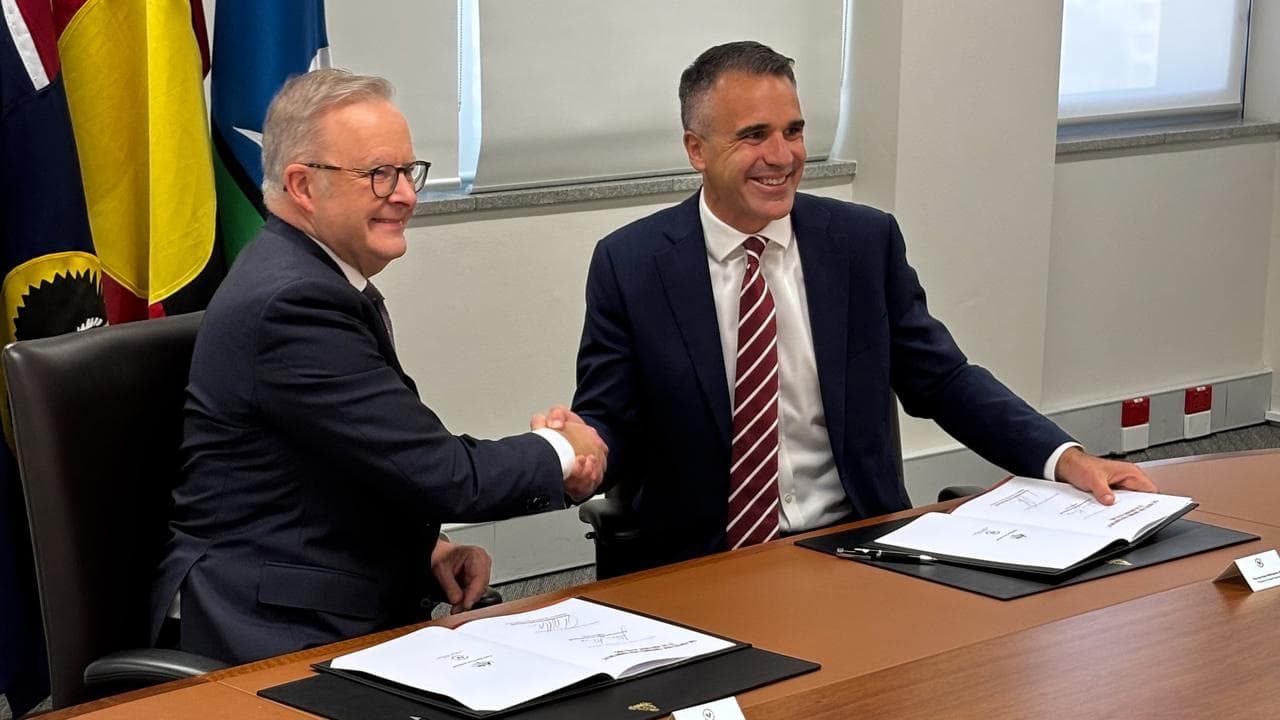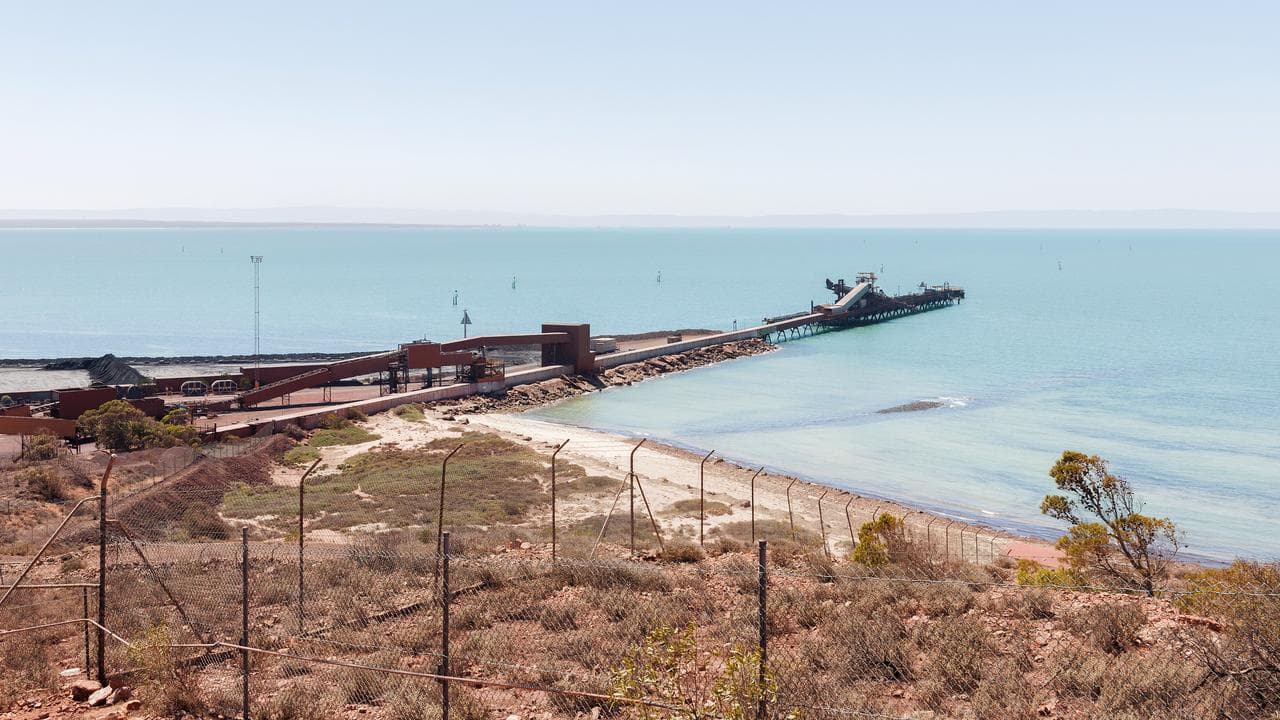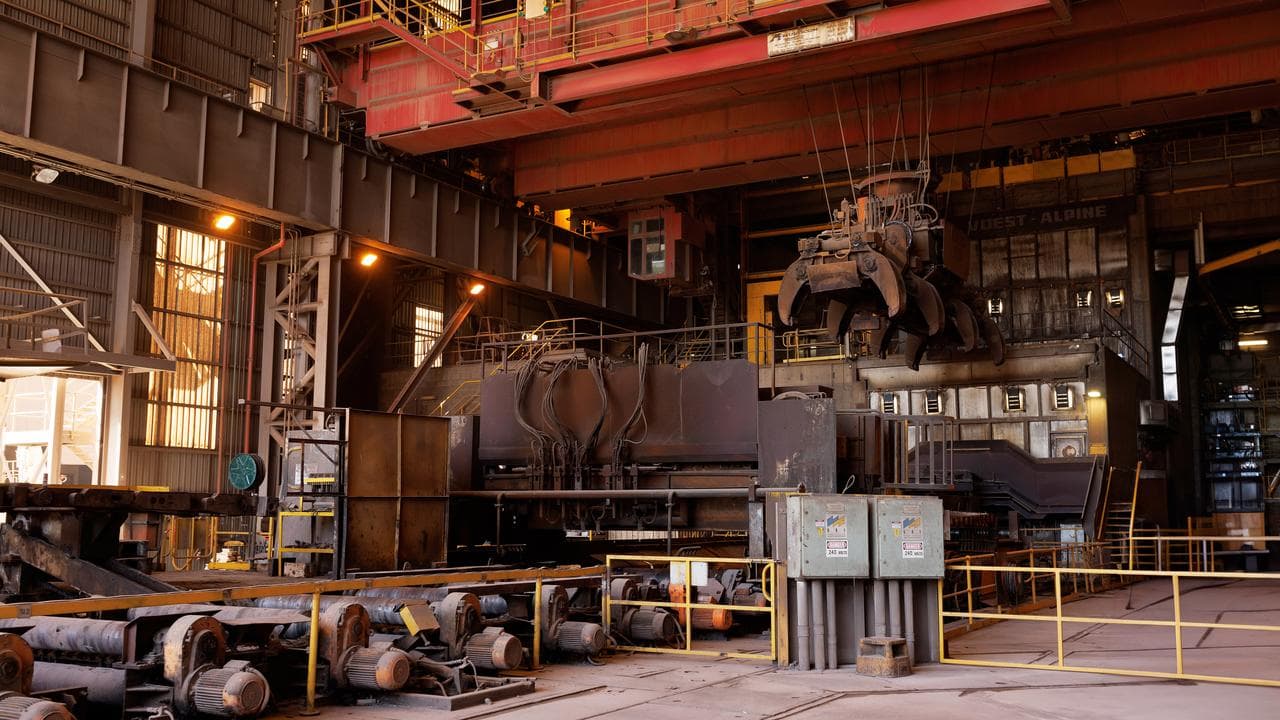
Failing to secure the future of steel production would expose Australia to significant economic repercussions, including job losses and disruptions in the construction and mining sectors, the Australian Steel Institute says.
Prime Minister Anthony Albanese and SA Premier Peter Malinauskas announced a $2.4 billion industry support package in Whyalla on Thursday, a day after the SA government rushed legislation through parliament that allowed it to place the town’s steelworks into administration because of the mounting debts of its owners, GFG Alliance.
On Friday, Australian Steel Institute chief executive Mark Cain said the steelworks produced a range of products that were unique in Australia, including hot-rolled beams, which are used in structures and rail.
“The beams are used in structures, so housing could be affected, commercial buildings, public infrastructure … by not having that supply locally, it could disrupt projects if there were long lead times from overseas,” he said.
“So if Whyalla were to close, we'd have to rely on importing those products from overseas ... that produces some sovereign risk in terms of exposure to international supply chains.
“So it would be a significant loss to the Australian steel industry because of its unique product portfolio.”
In Adelaide on Friday, Mr Albanese and Mr Malinauskas signed off on the agreement between the Commonwealth and SA in relation to the steelworks package.
“Imagine if we were here saying that the facility that produces 75 per cent of Australia's structural steel was gone," Mr Albanese said in a speech on Friday.
“And without the steel that's produced at Whyalla, that goes into our railways, goes into the building where we're in right now, goes into all of our major infrastructure projects - everything from the new Western Sydney Airport to railway projects - without that, we become dependent on someone else.”

Mr Cain said the other major consequence of closing the steelworks would be the “devastating effect” it would have on Whyalla and the South Australian economy.
“While there's about 1000 people employed there, there's all the other associated businesses and livelihoods in the township that really pivot off the steelworks,” he said.
It was very much the centre of the economic prosperity of that town, he said.
“There'll be products going into the mining sector as well. Basically their products will touch just about anything involved with construction or leveraging off buildings, whether it be factories or cool stores or refrigeration, you name it, these buildings are made of structural steel.”
There needed to be short-term confidence in the business and the initial package would stabilise that business and be used to pay creditors, Mr Cain said.
“And so that's to basically right the ship,” he said.
“The second part of the package was a significant amount of money to essentially rebuild the factory.
“It's very old, and it needs new equipment, and the previous owner, Sanjeev Gupta, the plan he had for renewal was a sound one, but it just was not happening.”

The steelworks’ blast furnaces are back up and running again and selling to the market.
The plans the government has for the longer term pivot around green steel, Mr Cain said.
“I think the government or a potential new owner would be looking to implement the sort of plan that Gupta had and make lower emissions steel, less carbon dioxide-intensive manufacturing,” he said.
“I've been directly involved with the federal government in looking at the green metals strategy, and we welcome the government's commitment to the steel industry.”
Mr Albanese said one of the lessons of the pandemic that needed to be put into practice was that Australia can't be a nation that's at the end of supply chains, and vulnerable to shocks.
“Which might be another pandemic, it might be trade issues - there's one or two you might have noticed around the world at the moment - or it could be an issue of conflict,” he said.




